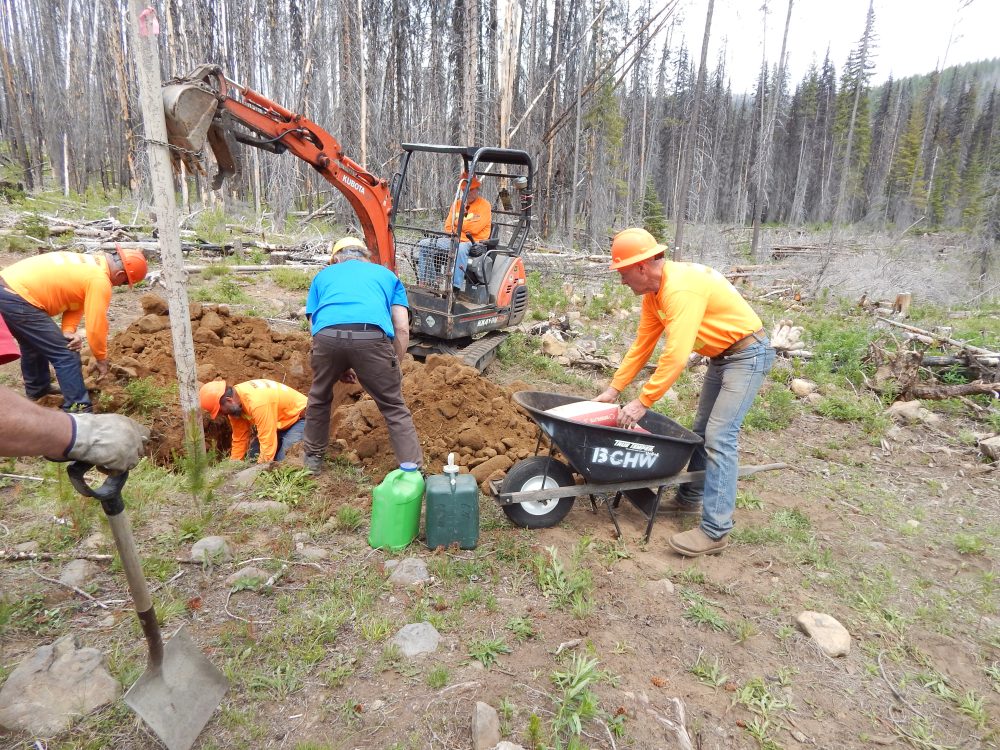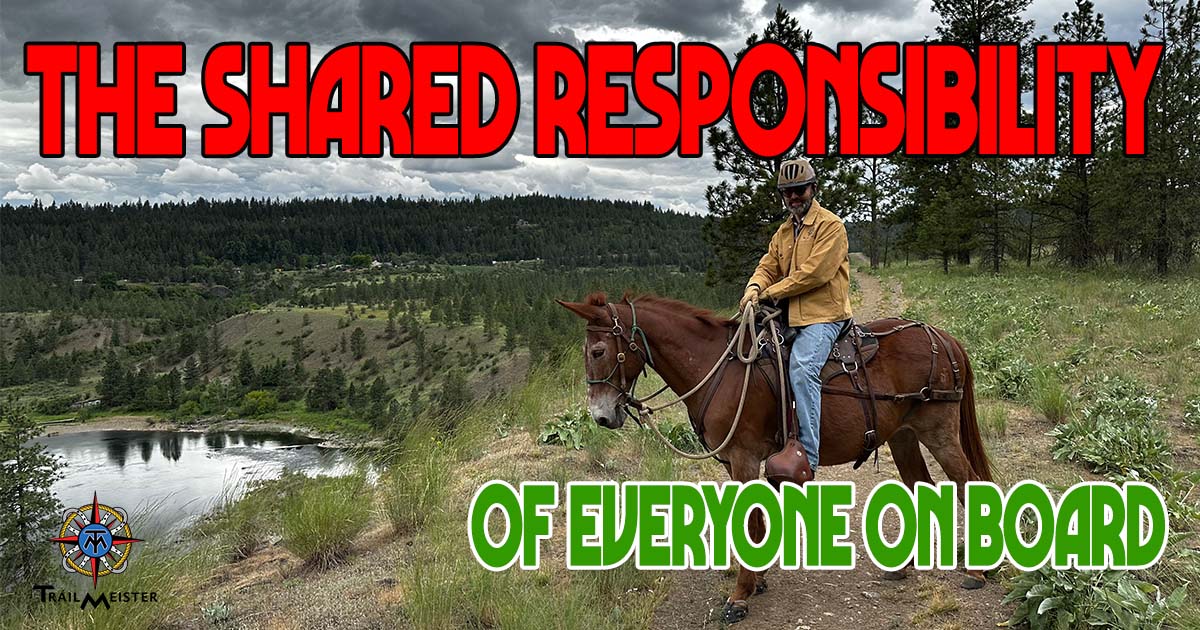Flying from clinic to clinic, I spend more time in the air than I’d like to admit. This past weekend, as I settled into my seat and watched the pre-flight safety briefing, a particular phrase caught my attention: “The shared responsibility of everyone on board.”

The concept stuck with me. “The shared responsibility of everyone on board.” goes far beyond the confines of an airplane cabin. In a way, we’re all “on board” the same planet, sharing responsibility for its care and how we treat each other. As horse and mule riders, we hold a unique and important role in this shared responsibility, particularly when it comes to preserving trails and equestrian access.
Stewardship and Setting the Example
It’s no secret: equestrians are a minority among trail users. Pretending otherwise doesn’t do anyone any favors. And while it’s true that many of the trails we ride today were first established for equine use—because horses were once the primary mode of travel—times have changed. Horses and mules aren’t the norm anymore.
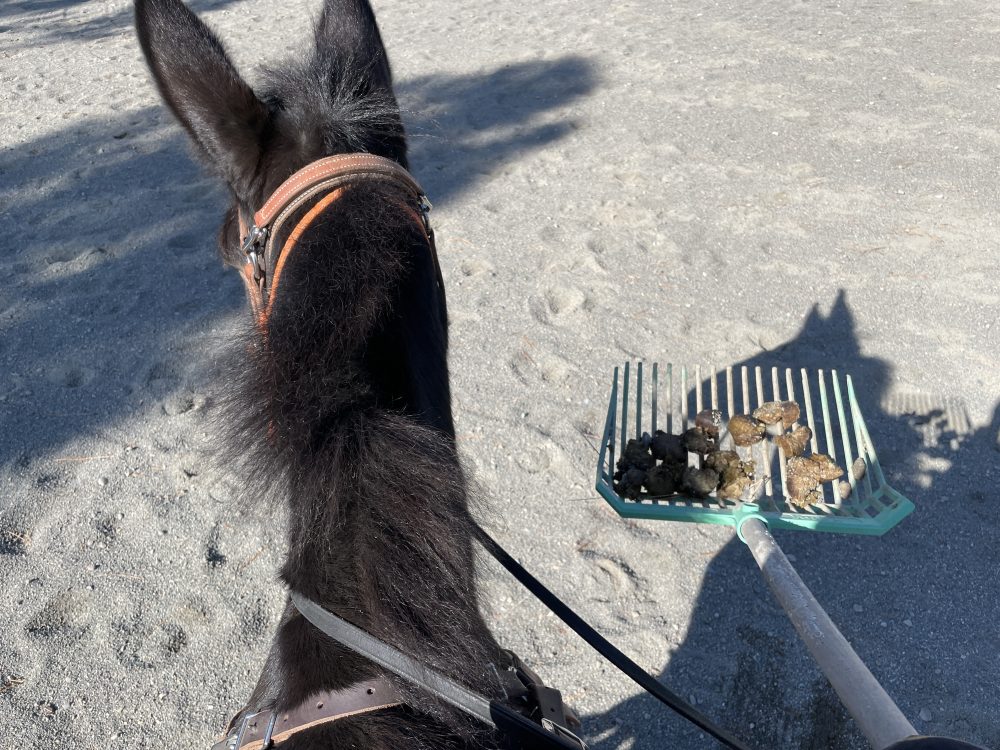
With more hikers, cyclists, and motorized trail users than ever, the responsibility for preserving equestrian trail access rests on us. Responsible horse camping and equestrian trail stewardship are at the core of this. It’s about more than respecting the land; it’s about respecting others who use it. Cleaning up after ourselves (and our animals), leaving trails better than we found them, and demonstrating proper trail etiquette are critical ways to set an example that other trail users—riders and non-riders alike—can appreciate.
Dispelling the Lone Rider Myth
We like to see ourselves as rugged individualists. It’s a romantic image. Sitting astride a sturdy horse or mule, feeling invincible as we move through the wilderness. And while there’s nothing wrong with enjoying that moment of freedom, the truth is, we’re anything but alone.
Public land access for equestrians isn’t guaranteed—we have to work for it. Organizations like Back Country Horsemen remind us that it takes a collective effort to maintain horse trails and engage with other user groups. Sharing the trail means recognizing that our choices reflect not just on us but on all equestrians.
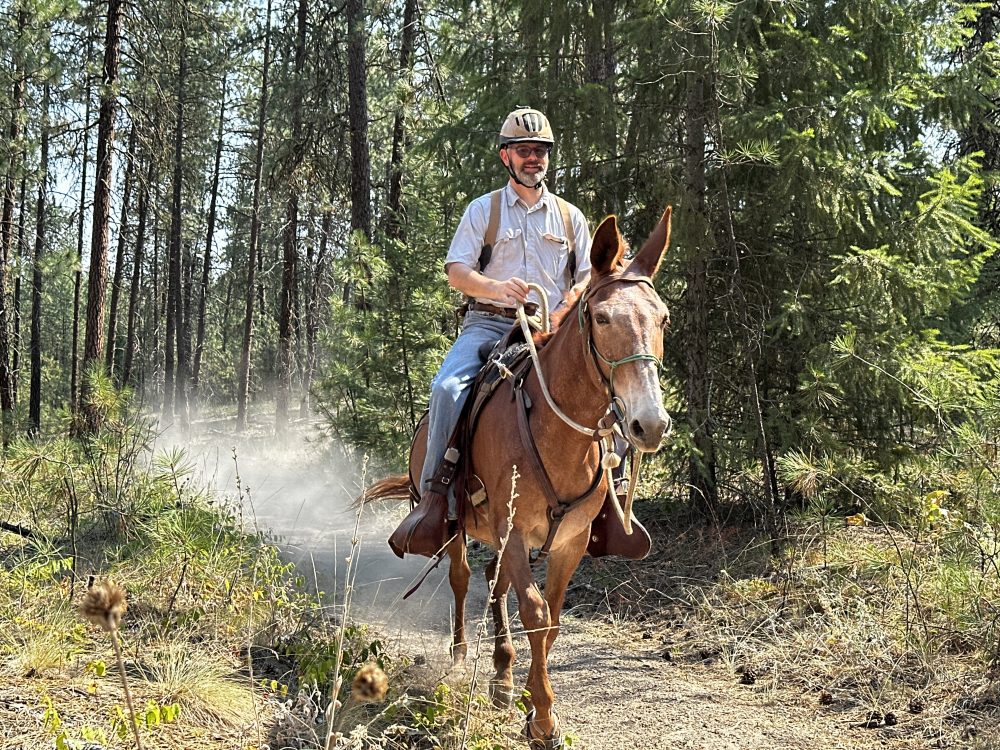
It’s been said that with great power comes great responsibility. Sitting astride an animal capable of carrying you through rugged terrain feels powerful—and it is. But that power also demands respect: for the land, for the animals, and for the other people who share the space with us.
A Little Effort Goes a Long Way
Responsibility isn’t always convenient or glamorous, but it’s always the right thing to do. Cleaning up manure in the parking lot, packing out someone else’s trash, or practicing leave no trace principles may not feel rewarding at the moment, but these small actions make a big difference.
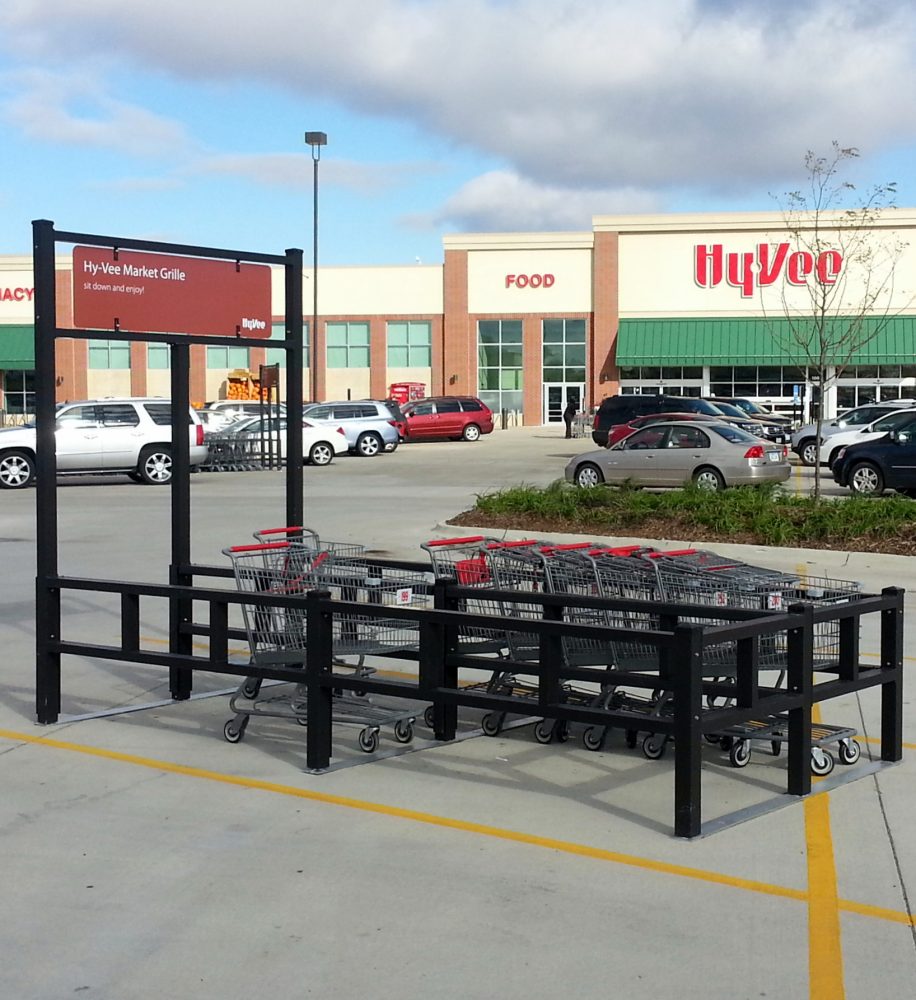
Think of it like returning a shopping cart to the corral—it’s a simple act that sets the tone for everyone else. The small, thoughtful choices many equestrians already make, from trail maintenance to respectful interactions with other trail users, encourage others to see the value in keeping trails open for equestrian use.
The Big Picture
Groups like Back Country Horsemen of America show us what shared responsibility looks like in action. They maintain trails, advocate for horse and mule riders, and show other user groups how responsible equestrian practices benefit everyone. They’re leading the way, but it’s up to each of us to follow their example.
The trails and camps that we enjoy today exist because our predecessors worked hard to preserve them. That legacy reminds us of our own responsibility: to protect these areas not just for ourselves but for future generations. Today, it’s our turn to ensure these trails remain open and accessible. Preserving equestrian access requires more than individual effort—it requires the shared commitment of everyone who values these special places.
So, next time you’re out on the trail, remember the shared responsibility of everyone on board. Whether it’s a plane, a planet, or a pack string, we’re all in it together. The privilege of trail riding comes with the responsibility to practice good stewardship, set a positive example, and ensure that the trails we love remain open for equestrian users far into the future.
For more of my thoughts on trail riding, camping with livestock, cinch making, and the world’s largest guide to equestrian trails, visit www.TrailMeister.com, follow TrailMeister on social media, or grab a copy of The ABCs of Trail Riding and Horse Camping on Amazon.
